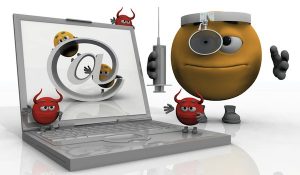 Security vendor NoVirusThanks has released SSDT View, a 64-bit (only) tool that can show you the contents of your System Service Descriptor Table, perhaps highlighting changes made by rootkits and other stealthy malware.
Security vendor NoVirusThanks has released SSDT View, a 64-bit (only) tool that can show you the contents of your System Service Descriptor Table, perhaps highlighting changes made by rootkits and other stealthy malware.
There are of course plenty of antirootkit tools around that can do something similar, and a whole lot more, but these are generally aimed at Windows experts. SSDT View is safer, and far simpler, which makes the program accessible to a far wider audience.
What’s the SSDT? Whenever Windows or one of your applications wants to carry out some action -- check the Registry, read or write a file, launch or close a process, and so on -- then this will usually result in Windows calling a service in the System Service Descriptor Table. Writing to a file will call the NtWriteFile service to do the actual work, for instance; on our test PC that entry points to memory address 0xFFFF:F800:0356:B210, which is within the module C:\Windows\system32\ntoskrnl.exe – the Windows kernel.
Malware will sometimes try to tamper with the SSDT, though, replacing the memory addresses with pointers to its own modules. If it successfully hooks the NtTerminateProcess function, say, the malware could intercept and block attempts to close it down, and with similar hooks elsewhere it really can obtain a great deal of low-level control over your PC.
To check your system with SSDT View, then, just install and launch the program and immediately you’ll see a list of your SSDT services, the relevant memory address for each one, and the module responsible for handling that call.
If your “Module” references are all pointing at the Windows kernel (ntoskrnl.exe, probably) then everything appears to be normal.
When one or more SSDT memory addresses are pointing elsewhere, though, this may be a sign of trouble. If you don’t recognise the module name as a legitimate program or driver you’ve installed then you may want to Google it for more information. (Just don’t start deleting files named here unless you’re 100% sure what you’re doing, otherwise you could cripple your PC.)
Photo Credit: njaj/Shutterstock

